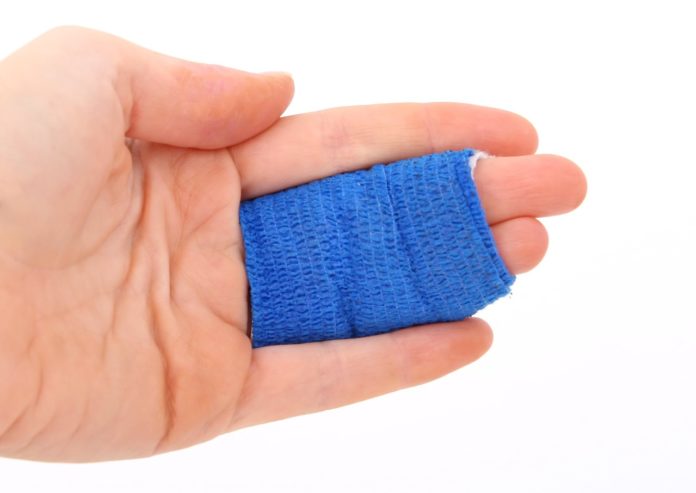Personal injury is defined as a physical or psychological illness or injury that occurs due to someone else’s wrongful action or negligence.
In order to pursue a successful personal injury claim, it is essential to establish that somebody else was at fault. The level of compensation for your loss and suffering that can be recovered will rely on the nature of the injury that arises as a result of the accident.
Types Of Personal Injury Claims
Following are the types of personal injury of which you can claim for:
1. Life-Changing Injuries
Undergoing any type of injury can be distressing and traumatic, making almost all injuries feel severe.
Injuries, in some cases, can be considered to be very severe, leaving long-lasting impacts not only on your present life but on your future as well. These injuries can have long-standing effects on the victim.
Commonly known life-changing injuries include:
-
Serious Injury
Generally, serious injuries are those that are more severe in contrast to the common types of accident related injuries; therefore, the consequences can be life-changing and lessen the quality of the victim’s life. A serious injury can occur anywhere by any means, but it will always have long-standing influences.
-
Head And Brain Injury
Experiencing head and brain injuries, not only will the situation be traumatic but also could lead to life-altering outcomes, not only for you but for your close loved ones too. Injuries/damages like these can often leave you to need 24-hours special care.
-
Fatal Accidents
This is a severe type of accident that causes the death of an individual — a death results either by accident or directly by a criminal act.
-
Amputation And Limbs Loss
Amputation is defined as the removal of a limb, this could be as a result of a medical illness or surgery or an accident that has left severe damage to the limb.
-
Broken Bones And Fractures
A fracture is a medical condition in which there is a partial/complete break in the continuity of the bone. A broken bone or fracture can be painful and can cause financial implications to the victim’s life.
-
Burn Injuries
Burns are categorized by the severity of the damage to the skin. A burn injury can have several impacts on a sufferer’s life, including the ability to work, continue hobbies or sports and can leave them with the feeling of demotivation as well as persistent discomfort. In severe cases, a burn injury can be life-changing.
Most people can recover from burns without serious health consequences, depending on the cause and degree of the injury.
2. Workplace Injury
A workplace injury can often be caused due to employers failing to follow the proper health and safety procedures and protocols. It is the duty of employers to provide their employees with a safe environment and ensure they have received adequate training for their role, along with the required equipment. If they breached this duty of care and an injury occurred as a result, then you could be entitled to make a claim.
-
Carpel Tunnel Syndrome
A common condition that causes pain, numbness, and tingling sensations in the arm and hand is called carpel tunnel syndrome. This condition occurs when one of the major nerves to the hand — the median nerve — is pinched or compressed as it travels through the wrist.
-
Hearing Loss
Living with a hearing impairment can be very frustrating– it can be hard for you to communicate, which has a knock-on effect on your self-confidence; you might find it particularly hard when you’re in places with lots of background noise, such as family parties or events.
-
Asbestos-Related Injury
When an individual inhales asbestos, fibers can become stuck in the lungs. Once there, they can cause scarring. Asbestos fibers can also cause mesothelioma and lung cancer.
-
Chemical Injury
A chemical burn is an irritation and damage of human tissue caused by exposure to a chemical, generally by direct contact with the chemical or its fumes. Chemical burns can happen anywhere in the home, at work or school, or as a result of accident or attack.
3. Upper Body Injury
An injury that affects any region between the top of your head down to your waist including your upper limbs (arms). Not only can these upper body injuries cause pain, they can also have an influence on finances, career opportunities and the other social aspects of your life.
-
Head Injury
A head injury is any injury/damage to the scalp, skull, or brain. The damage can range from an insignificant bump on the skull to a severe brain injury. A head injury can be either closed or open. A closed head injury means receiving a hard blow to the head superficially by any object, but it didn’t break the skull. Whereas, an open head injury is defined as any object hitting the skull forcefully causing it to break.
-
Neck Injury
This is when any part of your neck – muscles, bones, joints, tendons, ligaments, or nerves – is damaged/injured. Neck pain can be widespread; pain may also arise from your shoulder, jaw, head, or upper arms.
-
Eye Injury
Suffering from an eye injury is majority of the time, painful and can often result in a lengthy healing period. Meaning, in some cases, victims have to put their whole life on hold; in the more severe cases it can even result in permanent damage/sight loss.
-
Arm Injury
The most noticeable symptom will be an unexpected, severe pain in the upper region of your arm or at the elbow, depending on where the tendon is damaged. You may hear or feel a “pop” when a tendon ruptures.
-
Whiplash Injury
Whiplash arises due to sudden hyperflexion (forward) or hyperextension (backward) movement of neck during a car collision. People mistakenly consider it to be a minor injury and tend to neglect it without even considering it might lead them to severe consequences in later stages. You can claim a whiplash injury claim where you are not at fault and accident happened due to other party negligence.
4. Lower-Body Injury
Lower-body injuries are any injury that has been sustained in the waist region down to your toes. Most lower-body injuries can cause restrictions to your movement.
-
Back Injury
Experiencing a back injury may be worrying, and due to the restrictions in mobility, it can also lead to emotional consequences such as depression and isolation. The simplest daily task can become complicated and intolerable, putting your life at a pause due to the pain.
-
Leg Injury
Leg injuries can often affect your capacity to walk, lift heavy objects and drive; therefore, we know it is likely you have had to take some time off work while you recover from your injury.
-
Hip Injury
The pelvis and hips are important parts of your body, helping with stability and supporting the upper-body. Therefore, any harm to the hip or pelvis can result in you being unable to walk and limiting mobility, leading to you having to fight with your daily responsibilities.
-
Knee Injury
Not only are knee injuries painful but they also restrict your movement. Often meaning you are unable to move your leg fully or put weight on the joint, meaning you may not be able to walk, drive, work or take part in activities/hobbies you generally take part in.
If you want to make a personal injury claim then contact Direct Solicitors on 08000 250 250 today, we will be able to guide you, answer any queries you may have, evaluate and process your claim on a No Win No Fee basis. Our legal advice specialists are on hand to help you set up your claim in one quick and hassle-free process.







